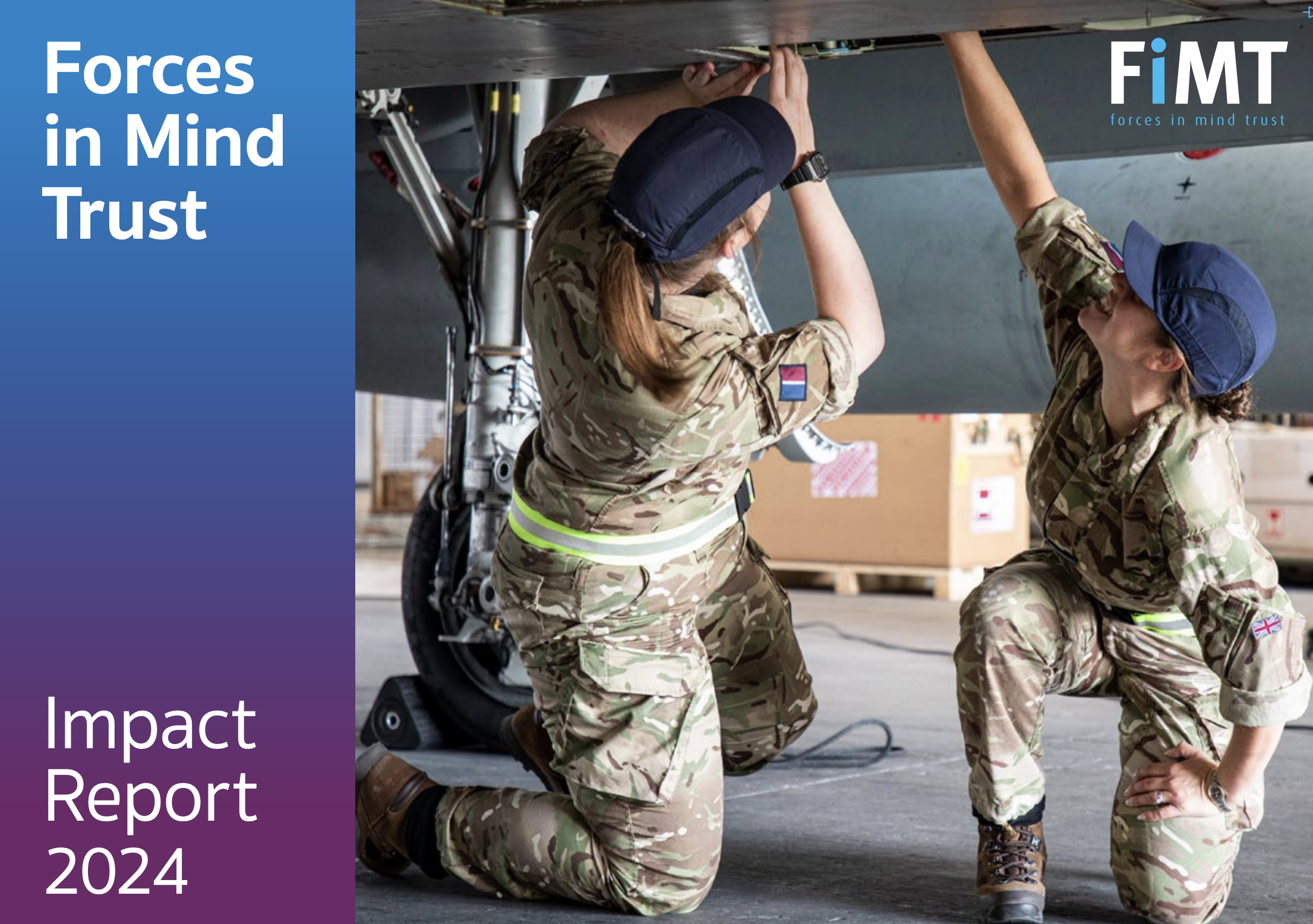Forces in Mind Trust (FiMT) has published its 2024 Impact Report, outlining its achievements over the past year and reaffirming its commitment to ensuring all ex-Service personnel and their families make a successful transition to civilian life.
Marking more than a decade of evidence-led impact, the FiMT Impact Report report details a wide-ranging programme of research, policy engagement, and cross-sector collaboration, with a focus on some of the most pressing challenges facing the Armed Forces community today – including housing, health, and family support.
Focus on transition, housing, and families
FiMT’s high-profile Roadmap to End Veteran Homelessness, developed with the University of York and Riverside, provided key recommendations now being used by the Office for Veterans’ Affairs and Ministry of Defence to help prevent homelessness among former Service personnel. Another major report, produced with Anglia Ruskin University, shed light on the unique experiences of non-UK veterans, sparking further policy engagement on immigration and support challenges.
Families were also placed at the centre of FiMT’s 2024 activity. The UK Veterans Family Study, the largest of its kind, identified both strengths and gaps in health and wellbeing support for veteran families. FiMT also launched Living in Our Shoes Revisited to track progress on supporting military families, with findings due in 2027.
Championing collaboration and evidence
The FiMT Impact Report highlights how to organisation continues to fund and support the Centre for Evidence for the Armed Forces Community, delivered by RAND Europe and King’s College London. The Centre now holds over 7,000 research articles and plays a key role in sharing knowledge with policymakers, academics, and charities. Its 2024 conference focused on turning research into real-world change – particularly around employment, health, and housing for ex-Forces personnel.
Elsewhere, FiMT funded updates to the Our Community, Our Covenant toolkit to help local authorities better implement the Armed Forces Covenant, and supported further research into Complex PTSD and the long-term effects of service-related trauma.
Emerging themes and future challenges
Looking ahead, the FiMT Impact Report identifies three priority areas: improving awareness of the Armed Forces in mainstream services, better understanding the health and wellbeing impacts of Service life, and recognising how the needs of the Armed Forces community are changing.
Workshops on artificial intelligence and future societal trends brought together stakeholders from across government, academia, and the charity sector to anticipate future support needs. FiMT’s efforts to promote joined-up thinking were also recognised through its sponsorship of the Working Together award at the Soldiering On Awards.
A call for continued collaboration
In her foreword for th FiMT Impact Report, Chief Executive Michelle Alston said: “We aspire to support the Armed Forces community by empowering both the system and the individual. Together, we hope that our work will enable Service personnel and their families to have the most successful transition to civilian life possible.”
Chair Jim Macleod added: “Our strength lies in our independence and ability to bring the right people together, around the right evidence, to drive the right decisions.”
Want the latest news straight to your inbox? Subscribe to our free weekly newsletter!
Interested in sales, marketing or business skills courses and training? Check out our training partner, Learning Room.
Got an enquiry? Click here.
